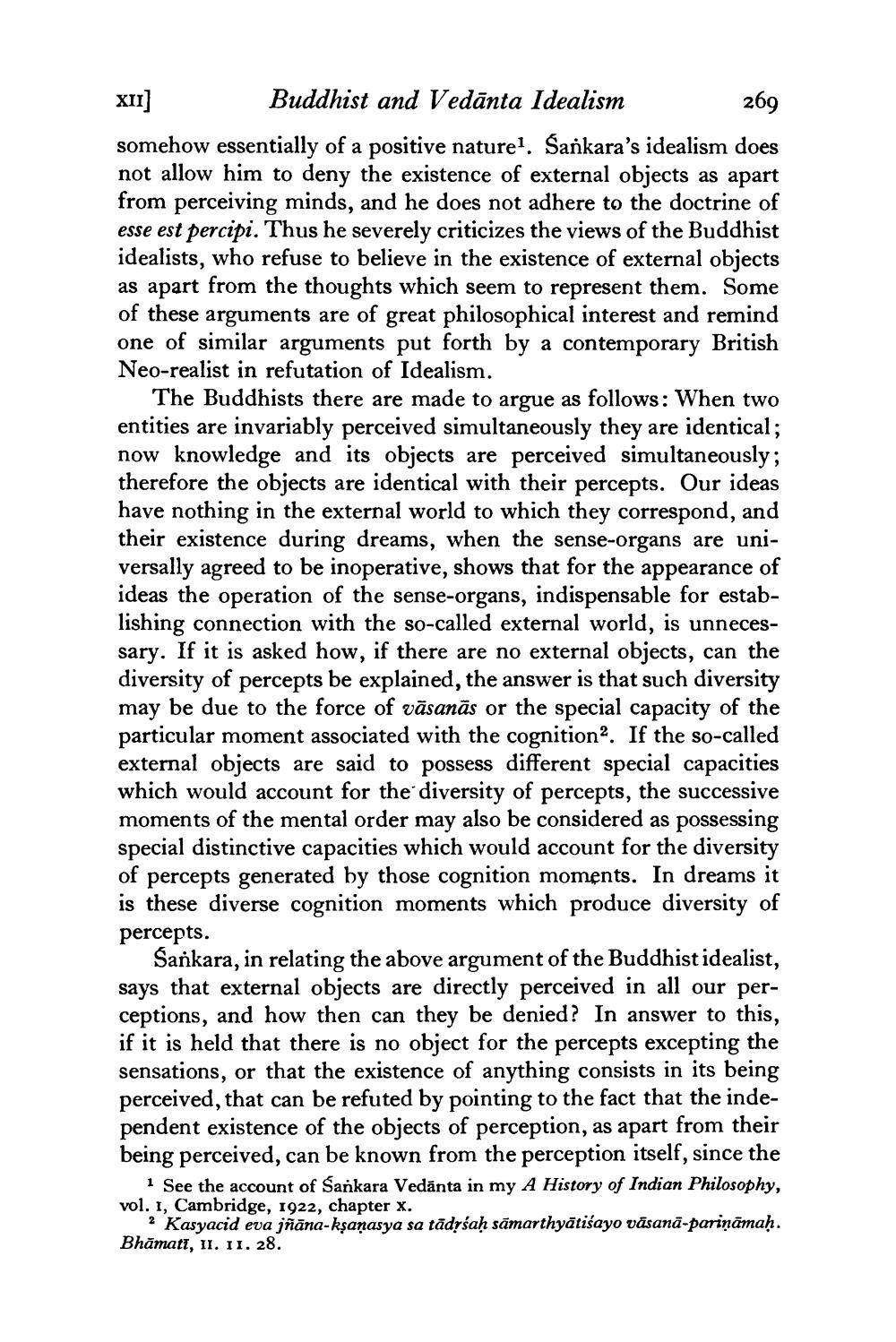________________
XII Buddhist and Vedānta Idealism
269 somehow essentially of a positive naturel. Sankara's idealism does not allow him to deny the existence of external objects as apart from perceiving minds, and he does not adhere to the doctrine of esse est percipi. Thus he severely criticizes the views of the Buddhist idealists, who refuse to believe in the existence of external objects as apart from the thoughts which seem to represent them. Some of these arguments are of great philosophical interest and remind one of similar arguments put forth by a contemporary British Neo-realist in refutation of Idealism.
The Buddhists there are made to argue as follows: When two entities are invariably perceived simultaneously they are identical; now knowledge and its objects are perceived simultaneously; therefore the objects are identical with their percepts. Our ideas have nothing in the external world to which they correspond, and their existence during dreams, when the sense-organs are universally agreed to be inoperative, shows that for the appearance of ideas the operation of the sense-organs, indispensable for establishing connection with the so-called external world, is unnecessary. If it is asked how, if there are no external objects, can the diversity of percepts be explained, the answer is that such diversity may be due to the force of vāsanās or the special capacity of the particular moment associated with the cognitiona. If the so-called external objects are said to possess different special capacities which would account for the diversity of percepts, the successive moments of the mental order may also be considered as possessing special distinctive capacities which would account for the diversity of percepts generated by those cognition moments. In dreams it is these diverse cognition moments which produce diversity of percepts.
Sankara, in relating the above argument of the Buddhist idealist, says that external objects are directly perceived in all our perceptions, and how then can they be denied? In answer to this, if it is held that there is no object for the percepts excepting the sensations, or that the existence of anything consists in its being perceived, that can be refuted by pointing to the fact that the independent existence of the objects of perception, as apart from their being perceived, can be known from the perception itself, since the
1 See the account of Sankara Vedānta in my A History of Indian Philosophy, vol. 1, Cambridge, 1922, chapter X.
? Kasyacid eva jñāna-kşanasya sa tādrśaḥ sāmarthyātiśayo vāsanā-pariņāmaḥ. Bhāmati, II. II. 28.




